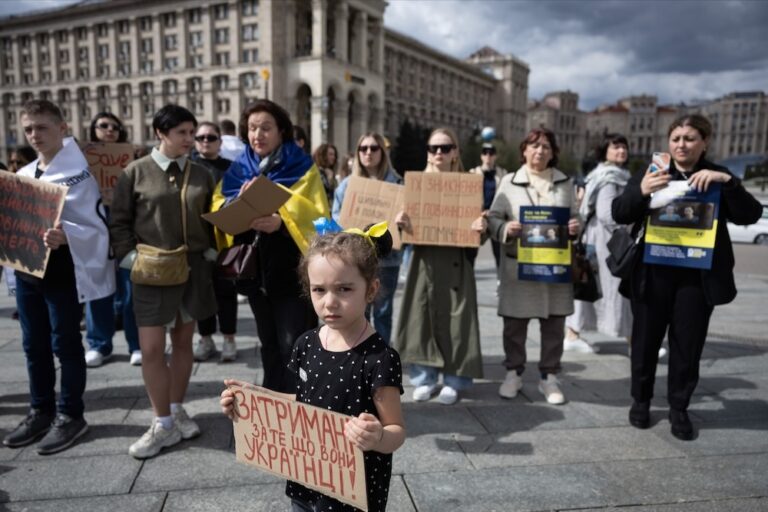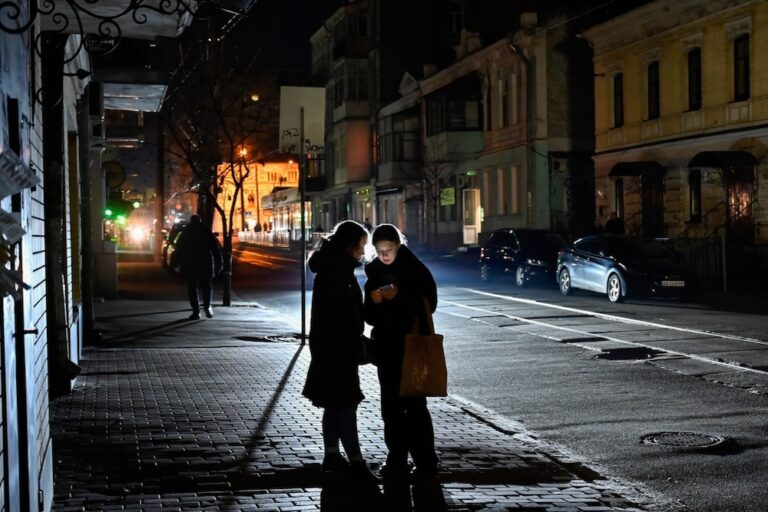Authorities should drop charges against villagers opposed to the construction of a power plant in preparation for the 2014 Olympic Games in Russia, says Human Rights Watch.
(Edited and condensed)
(Human Rights Watch/IFEX) – Moscow, September 7, 2012 – Russian authorities should drop administrative cases against villagers opposed to the construction of a large-scale power plant in the Hosta district of Sochi, Human Rights Watch said today. Residents fear noise pollution and emissions from a plant built so close to a residential area could have negative effects on their health and livelihoods. The plant is projected to be the largest natural gas-powered station in the world, and its construction is part of the government’s preparations for the 2014 Olympic Winter Games.
In August, three residents who protested the construction were detained and two have since been charged with administrative offenses. The three people were released, but as the confrontation between local residents, construction workers, and the police continues to escalate, Human Rights Watch called on local authorities to examine how preparatory construction work could have gone forward before all legal requirements for environmental assessment and public consultation had been met. Human Rights Watch also called on the authorities to uphold freedom of assembly and speech.
“People are speaking out because they fear that having a massive power plant in their backyards will harm their health and livelihoods,” said Jane Buchanan, senior researcher in Human Rights Watch’s Europe and Central Asia division. “Instead of penalizing residents who peacefully express legitimate concerns, the local authorities should take steps to address the serious questions about the legality of the construction.”
Protests Erupt
A wave of protests erupted in spring 2012 after preparatory work, including construction of a fence and an access bridge and the felling of trees, began at the site. A group of activists from the Kudepsta community board (in Russian, territorial’noe obshchestvenoe samoupravlenie, or TOS) set up an observation camp and on several occasions blocked the road leading to the site. They sought to prevent heavy machinery from entering the site to perform work they believed to be unlawful.
The preparatory work began before the results of an environmental impact assessment (EIA) had been presented at a public hearing, a requirement under Russian law. The hearing on the Kudepsta power plant EIA was held on August 24, 2012, more than two months after work started at the proposed power plant site. Under the national law regulating Olympic construction, no preparatory construction work for an Olympic site can be performed until all required documentation, including results of the environmental review, has been submitted for the state review.
Activists told Human Rights Watch that TOS members and local residents have faced difficulties obtaining official documentation, such as the full results of the environmental impact assessment studies, which by law the authorities should share publicly. Villagers submitted dozens of petitions and complaints listing environmental and legal concerns to the local and federal authorities as well as to the International Olympic Committee.
Arrests of Villagers
Villagers’ desperation at the lack of information and clarity about the legality of the project came to a head on August 14, when police detained Kudepsta TOS head Anatoly Mahnovsky and TOS member Pavel Chesnokov. Mahnovsky and Chesnokov had stood on the access road to the proposed power plant site with fellow residents who gathered peacefully to obstruct the arrival of heavy machinery.
Mahnovsky told Human Rights Watch that by being at the site at the request of local villagers, he was performing his duties as the head of TOS.
Both men told Human Rights Watch that police asked them to sign police reports containing false information about the circumstances of their detention, which they refused to do. Police later released them but charged them with organizing unsanctioned gatherings. The men deny that they organized anything, but simply gathered with others near the construction site. They are now awaiting trial.
Following their release, the men filed complaints with the prosecutor’s office against their unlawful arrests.
Police detained Chesnokov again the next day as villagers attempted to stop heavy machinery carrying construction materials moving towards the site. Chesnokov had called police to the site, asking them to check whether workers had the legal documentation required for preparatory construction work. Police charged Chesnokov with resisting the lawful orders of a police officer, an administrative offense. If convicted, he may face a fine and up to 15 days in detention. Chesnokov’s lawyer, Alexander Popkov, told Human Rights Watch that police held Chesnokov for eight hours without charging him or drawing up an arrest report, instead of the three hours allowed by national law. While at the police station, Chesnokov’s blood pressure spiked, and he was urgently taken to the hospital where he spent 10 days receiving treatment.
One TOS activist told Human Rights Watch that following these arrests, observation camp volunteers have received threats from law enforcement agents that they will “have serious problems” if they don’t leave the site.
Human Rights Watch research has documented increased pressure on freedom of media and civil society in Sochi and documented several instances of harassment of civil society activists and independent journalists publicizing issues of concern around the Sochi Winter Olympics in recent months.


